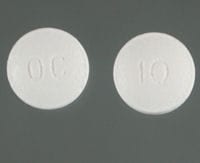Each type of substance abuse and addiction offers its own set of legal risks. Alcoholics run the risk of a DUI, which could lead to criminal charges or a costly personal injury suit. Illegal substance abusers, such as cocaine or heroin addicts, must always be vigilant for undercover drug enforcement agents when buying from a dealer. However, what are the legal ramifications for someone addicted to a prescription drug, such as OxyContin, the brand name of time-release oxycodone? The need for prescription drug abuse treatment is on the rise, thanks in large part to those addicted to OxyContin, a Schedule II opiate narcotic. Although its use requires a prescription in the United States, the tremendous increase of OxyContin abuse and the need for OxyContin addiction treatment shows that requiring a prescription for highly addictive substances does not always prevent abuse. OxyContin is only manufactured by one drug company and, as opposed to methamphetamine, cannot be made at home. As a Schedule II narcotic, distribution and consumption for other than a legitimate medical reason, is against the law. Oxycodone addicts and dealers must resort to illegal methods to obtain the drug including doctor shopping to compile multiple valid prescriptions, theft of prescription pads, purchasing prescriptions from crooked doctors, and robbing pharmacies. Oxycodone is now big business. A single 40 mg tablet starts as high as $30 on the street. Users must often also become dealers in order to pay for their habit. Doctors themselves are falling victim to abuse and must continue to sell bogus prescriptions to others to feed their own addiction. Like addictive substances that came before it, OxyContin abuse and dealing comes with significant criminal and civil legal penalties. Potential charges include armed robbery, drug trafficking, possession of illegal substances, unlawful distribution, writing illegal prescriptions and, in the case of over-prescribing doctors, manslaughter. For example, one Los Angeles area doctor has been charged with illegally prescribing 70,000 tablets in one year and has been implicated in the death of one of his “patients.” He faces a possible sentence of 40 years in prison. A Boston area doctor used the promise of OxyContin prescriptions to lure potential buyers of his Lexus SUV. He also sold his prescriptions for up to $500 a piece. In Cape Cod Massachusetts, the doctor credited with supplying over 30% of the state’s prescriptions to addicts and dealers has finally been put out of business. In an effort to protect themselves, some pharmacies are refusing to stock the drug, while others are enrolling with RxPatrol, a security network developed to help stem the tide of pharmacy robberies. The emerging OxyContin epidemic poses significant risks to society. It is similar in effect to heroin, although heroin is a fraction of the price. Thus, addicts who can no longer afford the habit must often resort to taking heroin to achieve the same high. As oxycodone addiction can often start innocently during medical treatment, physicians and family members need to be more vigilant in identifying the need for OxyContin addiction treatment. There has also been an alarming rise of teen oxycodone addiction, which often begins in their parents’ medicine cabinet. While the ultimate solution for the OxyContin addiction epidemic is to stop the manufacture of the drug, the solution seems unlikely. Despite settling a civil lawsuit in 2007 for $635 million, where it was accused of lying about the pill’s addictiveness, Purdu Pharma continues to rake in the profits from the legal, and illegal, distribution of this cash cow. Millie Anne Cavanaugh is an immigration attorney licensed to practice law in California & Massachusetts and is a former insurance defense lawyer. The information contained herein is provided for informational purposes only, and should not be construed as a solicitation for your business or as legal advice on any subject matter. You should not act or refrain from acting on the basis of this information without seeking independent legal advice.

